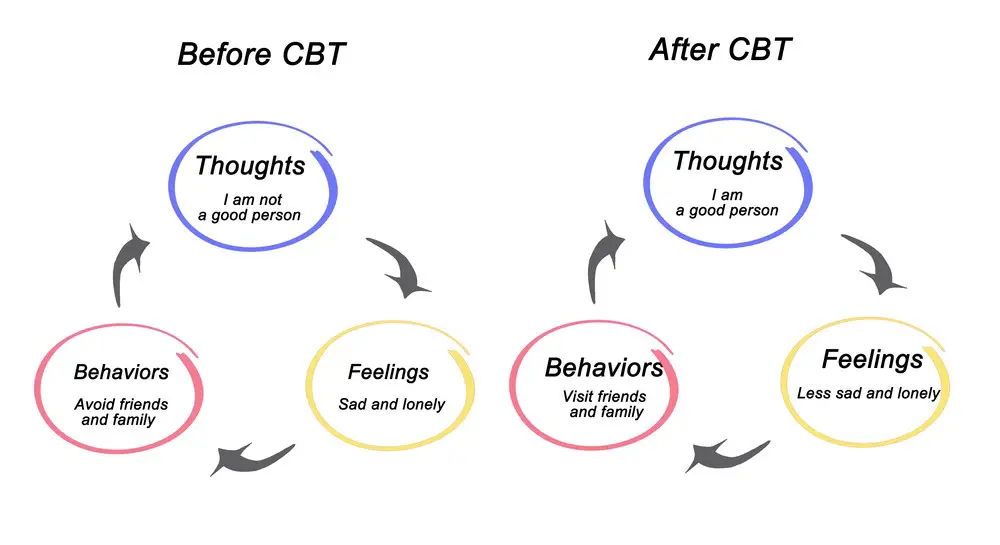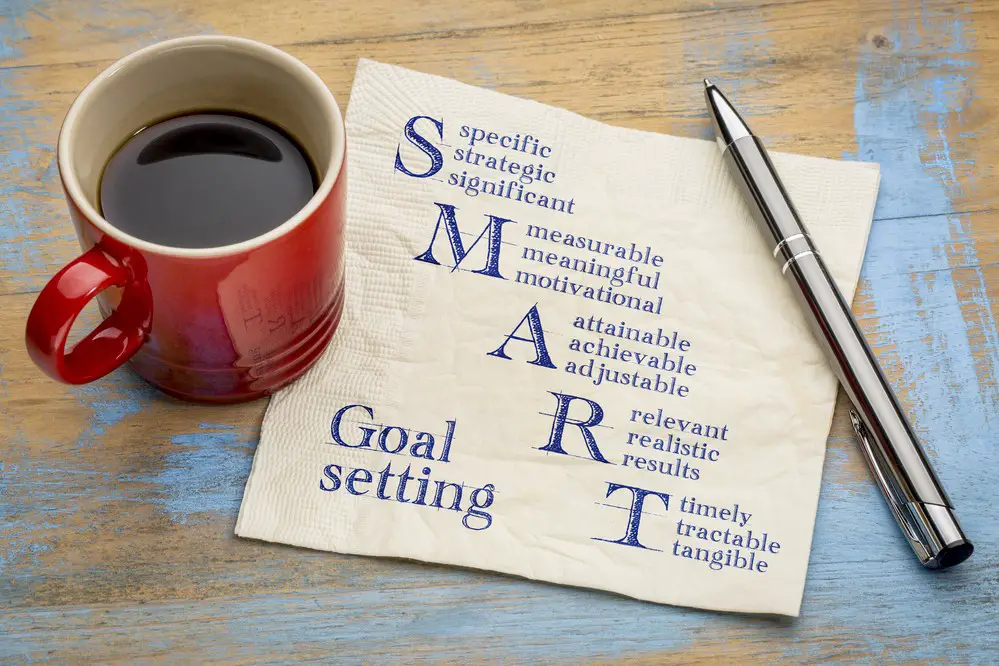As a BetterHelp affiliate, we receive compensation from BetterHelp if you purchase products or services through the links provided
Dealing with trauma triggers in a relationship can be difficult and bring up challenging emotions for both partners. Trauma triggers are experiences that remind someone of a past traumatic event, leading to symptoms such as flashbacks, emotional distress, or even physical reactions. Understanding and recognizing how these triggers work in your relationship is essential for building a solid and supportive bond.
When two people come together in an intimate partnership, there may be times when one or both partners experience a trauma trigger. This can strain the relationship and make it more challenging to maintain a healthy connection. Being aware of the common triggers and learning how to respond effectively can help couples work through these challenges and foster an environment of understanding and emotional safety.
Key Takeaways
- Recognize trauma triggers and their impact on relationships
- Work together to navigate post-trauma relationship dynamics
- Build emotional safety through understanding and supportive communication

Understanding Trauma and Its Triggers
Trauma can result from any event that threatens your physical or psychological well-being, such as a car accident, natural disaster, or abusive relationship. The impact of trauma can vary from person to person, but many experience long-lasting effects on their mental health. Post-traumatic stress disorder (PTSD) is a common condition that arises from trauma, and it often comes with a collection of triggers.
Trauma triggers evoke memories or feelings related to a traumatic experience. They can be external, like a specific sound or place, or internal, like an emotion or sensation. These triggers can cause sudden and extreme emotional reactions that aren’t easily controlled. It’s essential to understand that triggers are not signs of weakness but a natural response to past traumatic events.
Here are some ways to identify trauma triggers in your relationships:
- Observe your emotional reactions and try to find a pattern. Are you experiencing intense emotions with specific topics or situations?
- Listen to your body. Are there physical sensations or discomfort that arise when encountering specific triggers?
- Reflect on your past, including childhood trauma, and think about situations that could be causing your current triggers. Connecting the dots between your past and present experiences can provide insights into your trauma triggers.
When dealing with trauma triggers in relationships, working on understanding and overcoming them is essential. Here are a few strategies:
- Communicate with your partner: Share your past traumas, what triggers you, and how they impact you. Open communication can help build trust and understanding.
- Self-care: Focus on your mental health and well-being. Develop healthy coping mechanisms and practice relaxation techniques like deep breathing or meditation.
- Seek professional help: Therapy and support from mental health professionals can provide valuable guidance in addressing and managing triggers coming from trauma.
Remember, supporting your partner and being supported is vital to managing trauma triggers in relationships. With understanding, patience, and perseverance, you can work together to overcome these challenges and create a stronger bond.

The Impact of Trauma on Relationships
Trust and Control Issues
Trauma can deeply affect trust and control dynamics within a relationship. For partners who have experienced trauma, it might be hard to let go of the need to control certain aspects of their lives and environment. This can create tension and conflict between partners. Trust can also be challenged, as individuals may struggle with trust issues due to past abusive relationships or experiences. Both partners must rebuild trust and foster a supportive, understanding environment.
Emotional Reactions and Irregularities
Trauma can lead to various emotional reactions, including depression, anger, rage, guilt, and shame in a relationship. These emotions can be triggered by seemingly unrelated events or interactions, making it challenging to understand and cope with for both individuals. As partners navigate these emotional irregularities, they may experience increased conflict and strained communication. It’s vital to identify trauma triggers and develop strategies to manage them to maintain emotional well-being and a healthy relationship dynamic.
Some tips for managing emotional reactions include:
- Establishing routines to create a sense of stability
- Sharing feelings and emotions openly and honestly
- Practicing self-compassion and self-care to cope with feelings of guilt and shame
- Seeking professional help when necessary
Boundary Issues and Power Dynamics
Trauma can also impact power dynamics within a relationship, leading to unhealthy patterns of control, manipulation, or abuse. Both partners must recognize and respect boundaries, as a lack of clear boundaries can exacerbate power imbalances and potentially lead to abusive relationships.
To address boundary issues and power dynamics, consider the following:
- Communicate openly about boundaries and expectations within the relationship
- Practice assertiveness to communicate your needs and wants effectively
- Engage in activities that promote empowerment and self-confidence
- Seek professional help if power imbalances or abusive behaviors persist
Understanding and addressing these issues can foster a more robust, healthier relationship and support your partner’s healing journey.

Recognizing Triggers in a Relationship
Hypervigilance and Anxiety
In relationships, trauma triggers can lead to hypervigilance and heightened anxiety. You may be constantly on alert, interpreting your partner’s actions, words, or tone of voice as potential threats to your mental health. This state of fear can contribute to problematic behaviors like avoidance, self-blame or overreacting to situations. To handle this, try to identify the root of your anxiety and establish open communication with your partner to discuss your feelings.
Triggered Memories and Flashbacks
Trauma triggers can cause vivid memories or flashbacks related to past traumatic experiences, which might result in intrusive memories and intense emotional responses. These recollections are often distressing and can disrupt your daily life. Maintaining a journal to record your thoughts and emotions as they arise might help you recognize patterns and better understand your triggers. Sharing these experiences with your partner enables them to offer support and understanding during challenging moments.
- Be aware of your emotional state.
- Identify the source of your triggered memories
- Communicate with your partner
![]() Move beyond pain and confusion together.
Move beyond pain and confusion together.
Behavioral Changes and Reactions
Understanding how triggered responses manifest is crucial in dealing with relationship trauma triggers. You may exhibit behavioral changes such as defensiveness, panic, or avoidance. Recognize when these behaviors arise and consider seeking support from a mental health professional who can help you develop coping strategies. Keep your partner informed about your progress so they can be a valuable ally throughout your journey.
- Monitor your behavioral changes.
- Seek professional help
- Collaborate with your partner
Sleep Disturbances and Nightmares
Trauma triggers can also lead to sleep disturbances like insomnia and nightmares. Your mind might be consumed by worry and anxiety when you attempt to fall asleep. Sleep disruptions can affect your emotional well-being, making you more prone to agitation and mood swings. Establish a bedtime routine, maintain a comfortable sleep environment, and consider meditation or relaxation techniques to help manage sleep disturbances. Communicate your struggles with your partner to gain their support and understanding.
- Create a bedtime routine.
- Try meditation and relaxation techniques
- Share your concerns with your partner
Remember: Recognizing your triggers and understanding how they manifest in your relationship is the first step towards effectively managing trauma triggers.

Responding to Trauma Triggers
When dealing with trauma triggers in a relationship, it’s crucial to adopt strategies that promote healing and growth. In this section, we’ll explore the following approaches:
Seeking Professional Help
First and foremost, don’t hesitate to seek help from a mental health professional. A therapist with experience in trauma-informed care can guide you through the process of understanding and coping with your triggers. They may employ techniques such as Eye Movement Desensitization and Reprocessing (EMDR) and Cognitive Behavioral Therapy (CBT) to support your healing journey.
Key Takeaway: Seeking professional help is crucial to healing and understanding your trauma triggers.

Employing Therapy Approaches
Implementing therapy approaches like EMDR and CBT in your daily life can help you develop healthy coping mechanisms. EMDR focuses on decreasing distress associated with traumatic memories, while CBT helps you reframe your thoughts and behaviors related to triggers.
Key Takeaway: Integrating therapy techniques into your life can lead to more effective coping with trauma triggers.
Joining Support Groups
You’re not alone in your struggle with trauma triggers. Support groups offer a safe space to share your experiences and learn from others who’ve gone through similar challenges. By joining a support group, you can build a robust support system that aids your healing journey.
Key Takeaway: Connecting with others through support groups can provide valuable insights and encouragement during healing.

Practicing Self-Care and Mindfulness
Dealing with trauma triggers can be both mentally and physically exhausting. It’s vital to prioritize self-care and practice mindfulness. Consider activities like deep breathing, meditation, and expressive writing to better manage and understand your triggers. Regular exercise and a balanced diet also contribute to overall well-being, making coping easier.
Key Takeaway: Focusing on self-care and mindfulness improves mental and physical health, enabling you to manage trauma triggers effectively.
Navigating Relationship Dynamics Post Trauma
Trauma can create a ripple effect within your personal relationships, as it impacts your mental health and can alter how you interact with others. Learning to navigate relationship dynamics post-trauma is crucial for fostering healing and maintaining healthy connections. Here are some practical ways to approach this challenge:
First, acknowledge the impact of trauma on your life and relationships. This includes recognizing the potential changes in your emotional regulation, stress levels, and reactions to situations. It’s essential to develop a strong support system, which may include friends, family, mental health professionals, and support groups.
Next, practice emotional regulation techniques to manage your reactions to triggers. Techniques such as deep breathing, grounding exercises, and mindfulness can be invaluable in managing acute stress associated with trauma triggers. These methods will help you stay present and focused on the current situation rather than reliving past distress.
Setting clear and healthy boundaries is vital to navigating relationship dynamics post-trauma. Establishing boundaries is essential in protecting you from further harm and reducing the risk of being drawn into toxic patterns like love-bombing, trauma bonding, and betrayal. Communicate your needs and limits to your partner, and reflect on how these boundaries are respected and implemented in your relationship.

When interacting with your partner, show compassion and understanding for your own experiences and theirs. Offer patience and support as you both work through your healing processes. Remember that it’s normal to feel vulnerable, fearful, and helpless sometimes—but this is where mutual understanding and compassion can be transformative.
Avoid placing blame or succumbing to feelings of guilt or shame. For those who have experienced childhood abuse or other deeply rooted traumas, these emotions can manifest in adult relationships, leading to rejection, insecurity, or anger towards oneself or others. You empower yourself to embrace your worthiness and inner strength by distancing yourself from these negative emotions.
Lastly, be mindful of your environment and its influence on your well-being. Recognize that specific environments or situations may exacerbate trauma symptoms or stress levels. Establish a safe and comforting space to share emotions and experiences with your partner, allowing you to feel secure and nurtured.
As you navigate the path to recovery and adjust relationship dynamics post-trauma, staying focused on self-care, communication, and mutual understanding can aid in fostering a healthier, more fulfilling connection with your partner. Remember, healing from trauma can be a long-term journey, but restoring your sense of safety and well-being in your relationships is possible with the right strategies and support.

Signs Therapy May Be Needed
So, you’re experiencing the strain of trauma triggers in your relationship, but how do you know it’s time to seek professional help? While every relationship is different, some signs that therapy might be beneficial include:
- Persistent Emotional Distress: You’re finding it more challenging to bounce back after experiencing a trigger.
- Communication Breakdown: Conversations about triggers often lead to arguments or emotional withdrawal.
- Increased Anxiety: You or your partner become increasingly anxious about possibly encountering triggers.
- Relationship Strain: The quality of your relationship has noticeably deteriorated due to the stress of handling trauma triggers.
In these cases, it may be valuable to consult a professional to equip you both with better-coping strategies.

Setting Goals for Therapy
When you venture into therapy, it’s good to have a roadmap. Having well-defined goals can make your therapeutic journey more focused and fulfilling. Here are some goal-setting tips:
- Specific Objectives: Instead of general goals like “improve communication,” aim for specifics like “learn how to discuss triggers without escalating.”
- Prioritize: Pick the most pressing issues and focus on those first. Rome wasn’t built in a day.
- Commitment: Therapy is a two-way street. Be prepared to invest both time and emotional energy to reach your goals.
- Openness: Be willing to explore underlying issues you might not know initially. This could be fundamental to resolving triggers.

Monitoring Progress in Therapy
How do you know therapy is working? Sometimes, it’s tough to tell if you’re making headway when in the thick of it all. Here are some ways to monitor progress:
- Regular Check-ins: Take a moment every few weeks to assess how things are going. Discuss this openly with your partner and therapist.
- Note Emotional Trends: Are you generally happier, more secure, or more understood? That’s progress!
- Skill Development: Have you learned new coping skills or communication strategies? Are they effective in real-world situations?
- Review Goals: Are you moving closer to achieving the goals you set? If not, it might be time to adjust your strategy.
Remember, progress isn’t always a straight line. There may be setbacks, but that doesn’t mean you’re not progressing.
Building Emotional Safety
Navigating a relationship while dealing with trauma triggers is far from simple. Yet, a robust and supportive bond can help weather the most brutal storms. To build emotional safety:
- Be Proactive, Not Reactive: Instead of waiting for triggers to happen, have a strategy in place.
- Listen, Don’t Judge: Sometimes, the best support you can offer is a listening ear and an open heart.
- Regular Reassurance: Remind each other of your commitment and love, especially during challenging times.
Creating a safe emotional space takes time, patience, and, above all, empathy. While the journey may be arduous, the reward—a stronger, more resilient relationship—is well worth the effort.
Conclusion
Practicing open communication and patience between both partners is essential to successfully deal with trauma triggers in a relationship. By understanding one another’s triggers, you can work together to create a safe and supportive environment while navigating through emotional challenges.
To help manage trauma triggers within your relationship, try these strategies:
- Develop self-awareness and share your triggers with your partner, allowing mutual understanding.
- Practice empathy by listening to your partner’s experiences and validating their emotions without judgment or blame.
- Develop healthy coping mechanisms that help you effectively manage emotional responses when faced with a trigger.
- Set boundaries within the relationship that ensure you and your partner feel safe and respected.
- Consider seeking professional help in the form of therapy or counseling, both individually and as a couple, to address unresolved trauma and learn healthy communication techniques.
Remember, dealing with trauma triggers in a relationship may be challenging, but with dedication, patience, and support, overcoming these obstacles and creating a stronger bond is possible.
Frequently Asked Questions

How can I recognize trauma triggers in a relationship?
Trauma triggers can manifest in various ways, such as intrusive thoughts, flashbacks, or extreme emotional reactions. You might notice that certain situations or behaviors in your relationship seem to provoke these responses consistently. Please pay attention to patterns, which can help you identify your trauma triggers.
Key takeaway: Recognize trauma triggers by observing patterns and reactions in your relationship.
What are some strategies for managing trauma triggers with a partner?
To manage trauma triggers in your relationship, you can:
- Share your triggers openly with your partner
- Establish boundaries in discussing or encountering trigger topics
- Create a “safe word” to signal that a trigger has been activated
- Work together on relaxation and grounding techniques to manage emotional responses
Key takeaway: Establish strategies as a couple to share, set boundaries, and support each other when facing trauma triggers.
How can we communicate effectively about trauma triggers in a relationship?
Effective communication about trauma triggers involves:
- Choosing a safe and comfortable environment to discuss the topic
- Using “I” statements to express your feelings and experiences without blame
- Encouraging empathy, patience, and understanding from both parties
- Developing a plan to address triggers and avoid potential misunderstandings
Key takeaway: Open, honest, and empathetic communication is essential when discussing trauma triggers with your partner.
What role does trust play in addressing trauma triggers in a relationship?
Trust is crucial when dealing with trauma triggers. Sharing your triggers requires vulnerability, and trusting your partner to handle them sensitively is important. Trust also allows for emotional safety, ensuring both parties feel secure and supported in navigating the complexities of trauma triggers together.
Key takeaway: Trust creates a safe and supportive foundation for addressing trauma triggers in a relationship.
How can therapy help in dealing with trauma triggers in a relationship?
Therapy offers individuals and couples a safe space to explore trauma triggers and develop coping strategies. Professional guidance helps to identify triggers and provides tools for managing emotional responses. Couples therapy can also facilitate better communication and teamwork in addressing the challenges that trauma triggers may bring.
Key takeaway: Therapy provides essential tools and insights for understanding and managing trauma triggers in a relationship.
What are self-care techniques for someone experiencing trauma triggers in a relationship?
Self-care is essential for maintaining emotional well-being when dealing with trauma triggers. Some self-care techniques include:
- Practicing relaxation and grounding techniques (e.g., deep breathing, grounding exercises)
- Prioritizing sleep, nutrition, and exercise to support overall wellness
- Engaging in hobbies and activities that bring joy and relaxation
- Seeking emotional support from friends, family, or a mental health professional
Key takeaway: Self-care is crucial for maintaining emotional well-being while addressing trauma triggers in a relationship.
About Jacob Maslow
After surviving the traumatizing events of 9/11, I took it upon myself to heal through helping others. I’m the primary caregiver of my children and understand from first-hand experience the lonely paths you have to walk as a partner and parent when leaving an unhealthy relationship.
We’re all echoing in a dark space that doesn’t have to be this empty, and that’s been my mission since finding solace and recovery in therapy: To help comfort others who are still in shock and at the prime of their struggle.
I came across BetterHelp after searching for this type of community. I wanted to belong to a body of proactive therapists and supportive therapy veterans that allowed me to see other sides of the story.
It was unconventional, and that’s what attracted me most. During my most challenging times, when my ex-wife completely cut me off from my children, I found comfort and clarity through BetterHelp.
Instead of being chained to a strict therapist recommendation, I was in charge of who I felt understood my struggle most. That allowed me to find my true peace, as I was reunited with those who read behind my words and had first-hand experience with my trauma.
Recovery is a choice; with BetterHelp, that choice will be a few clicks away. You can join their couples-oriented platform, Regain.us, for those stuck with family estrangement and toxic relationship patterns.
- Breaking the Silence: Why Men’s Mental Health Matters More Than Ever - April 15, 2025
- How to Transform a Home’s Patio Space into a Relaxing Space - March 23, 2025
- 5 Strategies to Use a Cell Phone to Help Manage Your Stress - March 23, 2025
This site contains affiliate links to products. We will receive a commission for purchases made through these links.



